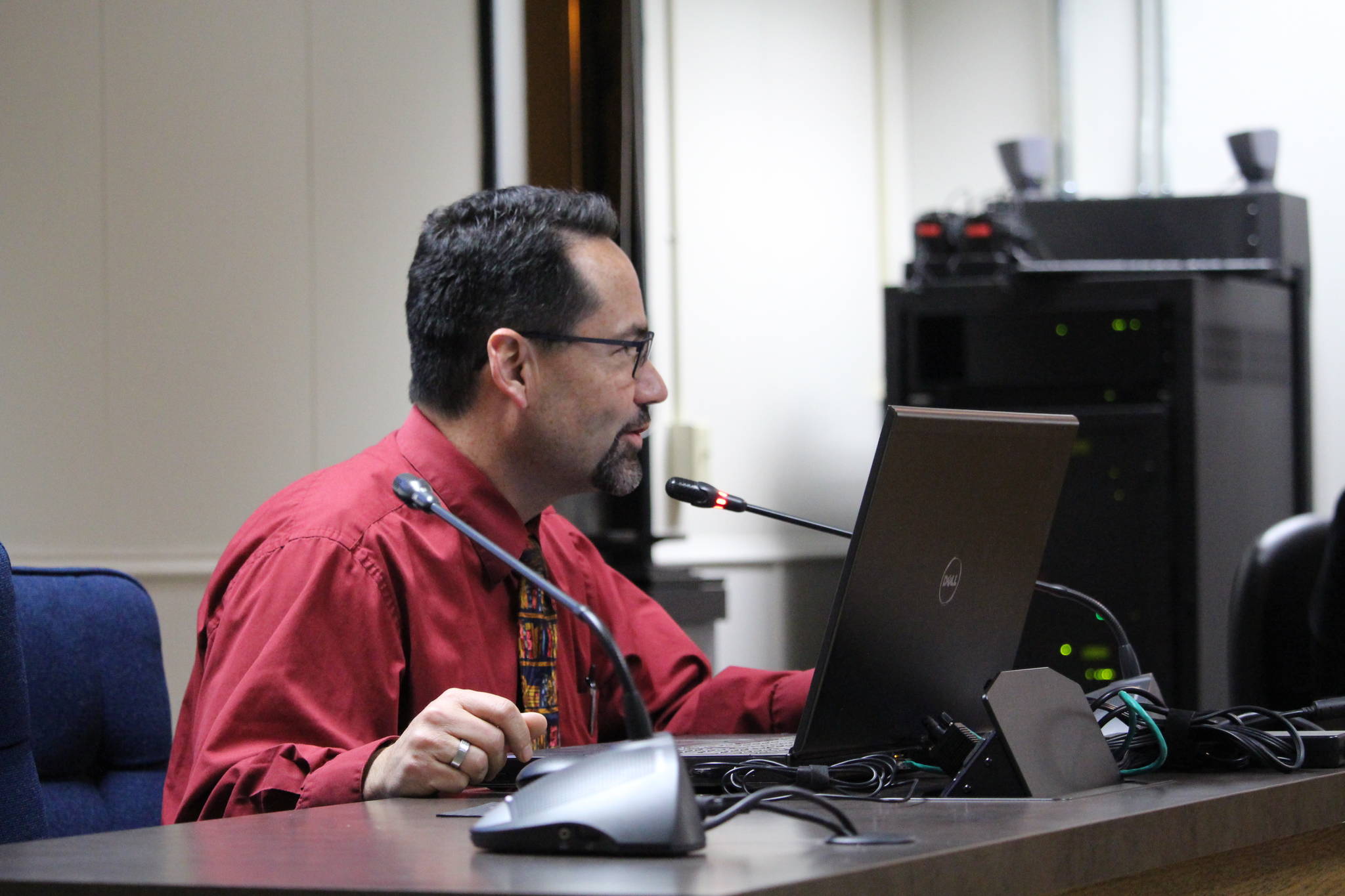Superintendent, John O’Brien gave an update about district enrollment, test scores and goals at Tuesday’s Kenai Peninsula Borough Assembly meeting
To begin, O’Brien said the Kenai Peninsula Borough School District’s graduation rate is continuing to improve, rising above both state and national averages.
The 2019 graduation rate was 88.27%, according to O’Brien.
When it came to the PEAKS exam results, released in September, O’Brien said that he was not at all pleased with the results.
“We know we need to do better,” O’Brien said.
The state assessments are used to provide data for parents, educators, policymakers, communities and businesses about how Alaska schools are performing. Students score on a rubric of four levels — advanced, proficient, below proficient and far below proficient. The student scores are then used by the state to assess whether students are proficient or not proficient.
Kenai Peninsula students scored on average higher on English, math and science than students did statewide. O’Brien said students on the peninsula also out performed other comparable districts in Anchorage, Fairbanks and the Matanuska Susitna Borough.
Student enrollment in the district is also down, O’Brien said. The official 20 day enrollment count happens in October, and the Sept. 25, 2019 snapshot count shows the district has 8,525 students enrolled, 155 less students than last school year and 350 less students than in 2016-2017 school year.
The district has seen an increase in the number of students who are enrolled in special education. There were 1,680 students enrolled in special education last year, 254 students more than were enrolled in 2013-2014.
Students with intensive needs has also increased, O’Brien said. There were 203 students enrolled in intensive needs in 2018-2019, 57 more than in the 2013-2014 school year.
O’Brien also emphasized his focus on positive school climate and culture.
“As long as I am superintendent of the Kenai Peninsula Borough School District, I will be heavily focused on school safety, positive school culture and ensuring that when our students come to us with needs they are met with social and emotional learning,” O’Brien said. “It’s a very important issue to me.”
Social and emotional earning helps students manage their emotions, helps them have empathy for others and teaches them skills to build positive relationships with their peers, teachers, family and to make responsible decisions, O’Brien said.
He said that until the district addresses the underlying needs of students who have experienced trauma and focuses on a safety net for those students, that the district’s achievement scores won’t go any higher than they already are.
Suicide Risk Assessments and Office of Children’s Service referrals have been steadily increasing over the last several years.
“That is a trend we really need to tackle,” O’Brien said.
In the 2018-2019 school year, the district had 204 Suicide Risk Assessments and 258 Office of Children’s Service referrals. In 2013-2014, there were only 47 suicide Risk Assessments and 153 Office of Children’s Service referrals.
O’Brien said the district needs more social workers and counselors, especially at the elementary level. Today, there are no counselors in any of the district’s elementary schools, O’brien said.
“It breaks my heart we don’t have any counselors in the elementary schools” Assembly member Brent Hibbert said after the presentation.
The district recently applied for a $5 million grant that would disperse five to six counselors across the peninsula for five years, O’Brien said.

